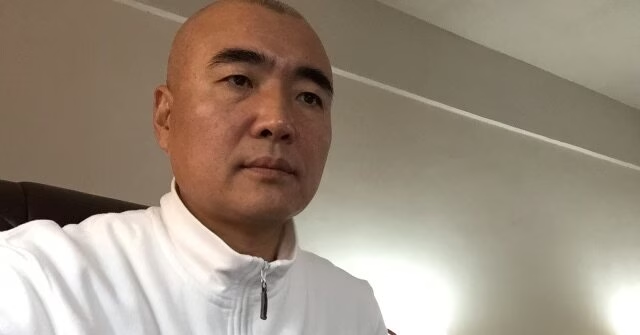A Chinese-born American businessman was sentenced last week to five years in prison in China, on charges related to a criminal case nearly 25 years ago, despite having frequently made routine trips in and out of the country after the fact.
The businessman’s family, as well as a longtime human rights activist, say the case is an example of the arbitrary nature of law enforcement in China. They have urged the Chinese government to release the businessman, David Lee, on humanitarian parole, noting that he had been hospitalized for 10 days and that they believed he had suffered a stroke.
Mr. Lee’s sentencing on April 23 came as tensions between the United States and China were at their highest point in years, inflamed by President Trump’s tariffs. There were no signs that the case was related to the tensions, but it could add another source of friction to the relationship.
Mr. Lee was found guilty of intentional injury and “picking quarrels and provoking trouble,” a vague charge that China often uses against people it perceives as a threat to social stability. In the written verdict, the judge said that Mr. Lee, 61, had been involved in three altercations in 2000 and 2001, one of which led to a man’s death.
But the family of Mr. Lee, who held a green card at the time and became an American citizen in 2002, said his role in those incidents was minor. He was briefly detained then released without charges, and he assumed the case was closed, his wife, Louise Lin, said. Over the next two decades, he traveled to China nearly every month for his work as a wholesale lighting supplier for Home Depot.
Mr. Lee sometimes spent months at a time in China with no issue, Ms. Lin said. “If you know you’re in trouble, of course you’re not going to go back,” said Ms. Lin, who lives in California.
He often returned to Hebei Province, where he grew up. That was also where he was abruptly arrested in the elevator bank of his hotel last April, while going to breakfast with Ms. Lin, she said. She said she did not know why Mr. Lee was being targeted.
Ms. Lin has not been able to see her husband since he was detained, except for once briefly when he appeared in court, she said. But she had heard from representatives of the United States Embassy, who were allowed to visit him, that he was in poor health and appeared to have lost around 50 pounds.
John Kamm, the founder of the Dui Hua Foundation, a California-based organization that works to free political prisoners in China, said that Mr. Lee should have been released on humanitarian grounds, as China has done in the past, when a person is at risk of dying.
He argued that the sentence was too heavy, and reflected the “appalling state of U.S.-China relations.” He noted that Mr. Lee was arrested while the White House and the Chinese government were negotiating the releases of other American prisoners.
Reached by phone, the judge in the case, Lin Sen, declined to comment. The Chinese Foreign Ministry did not respond to a request for comment. The United States Embassy in Beijing declined to comment.
The main incident in the case took place in March 2001, in Mr. Lee’s hometown, Baoding, in Hebei. According to the indictment, Mr. Lee, after learning of a business dispute involving an acquaintance, drove three people to the site of the dispute, where they began fighting with another group, using knives taken from the trunk of Mr. Lee’s car. One of the men in the opposing group was stabbed and died. Then Mr. Lee and his acquaintances drove away.
The people whom Mr. Lee drove were sentenced to prison. Mr. Lee, according to the verdict, said that he had not gotten out of the car. Other witnesses said the same.
In the United States, people convicted of driving getaway cars have been charged with murder and received prison sentences ranging from a few years to life.
The judge in China said he sentenced Mr. Lee more lightly because he was an accessory rather than a direct participant in the violence. Ms. Lin acknowledged that, since her husband had driven the car, she would have accepted a short prison sentence. But she thought five years was excessive.
The police detained Mr. Lee after the fight, but prosecutors did not authorize his formal arrest, the verdict said. He was “released on guarantee,” a form of bail. (Under Chinese law, criminal suspects must be released after 35 days if investigators have not gathered enough evidence to press charges. But the investigation can remain open.)
About a month later, Mr. Lee flew to the United States.
The court accused Mr. Lee of jumping bail, but Ms. Lin said that her husband had not been aware of any travel restrictions. She noted that he had not been formally arrested, and that he started returning regularly to China around 2004 or 2005, without incident.
His lawyers have filed an appeal.
Siyi Zhao contributed research.



